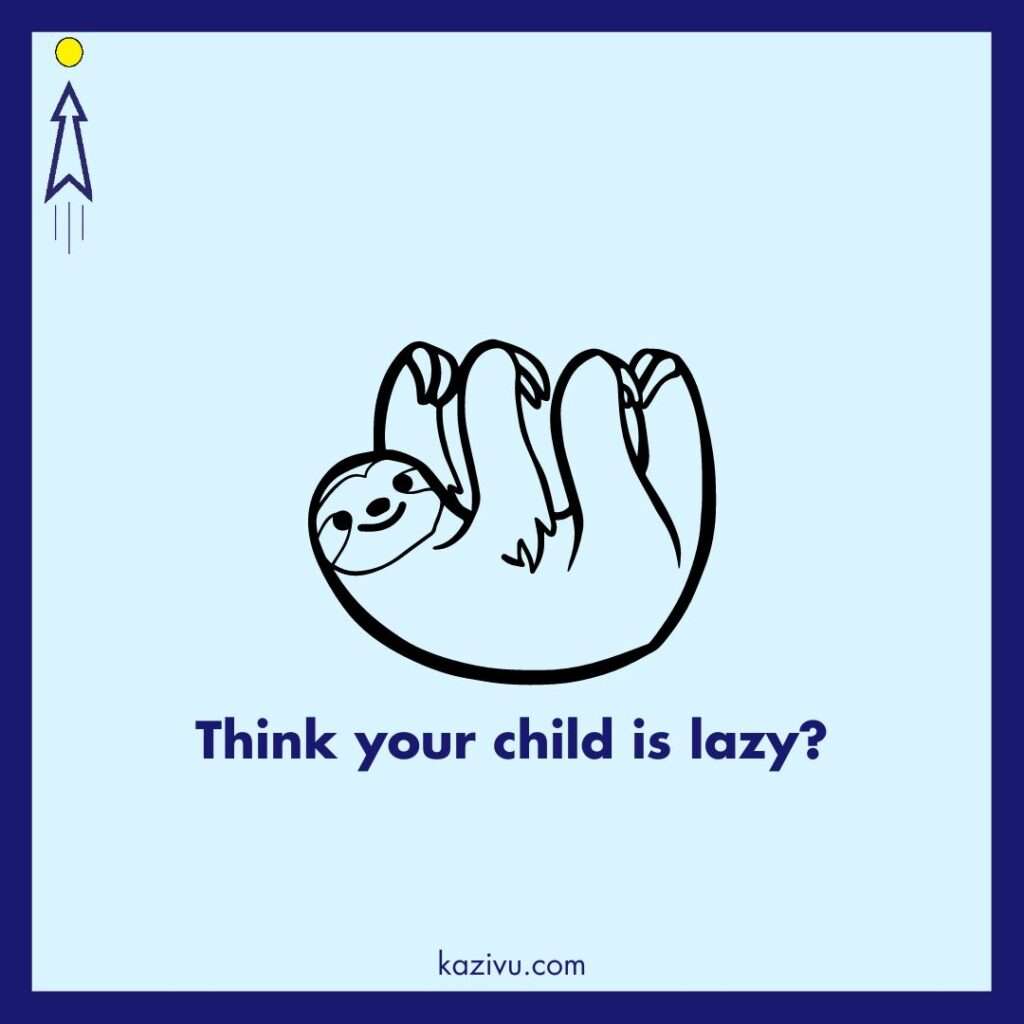There are 2 kinds of kids in the world.
The ones who come running back to you, excitedly waving the detergent bottle that you had asked for.
And then there’s the second kind. The ones who yell “Coming!!!” but leave you waiting until you slowly realise that they are not coming back, not with that detergent, not with anything else. You step back into the living room and predictably see them busy on their phone in complete oblivion, no sign of detergent anywhere near them.
Your kid may be the second kind of kid. Most of our kids are the second kind of kids. And I know what you may be thinking. If my child can’t get me a detergent bottle without getting distracted, how will they ever survive in the real world?
Our kids are so absent-minded, aren’t they? They never seem to remember anything. We worry about spoon feeding them but worry more that their life will collapse if we stop doing it. Why is he so lazy? Why can’t she take 2 minutes to make her own bed?
Well, here’s something that you may not have considered before: Our children’s ‘laziness’ might be a sign of something bigger, something deeper.
What you might be seeing as ‘laziness’ could actually be a deep struggle with procrastination.

Heard of procrastination?
I.Pro-cras-ti-na-tion
Procrastination in simple words is putting off important things. For example, spending hours watching random Youtube videos the day before an important exam. Sounds familiar? Seen it happen around the house? Yes, our kids do this a lot.
Another example is children wanting to snack as soon as they sit down to study. Sleeping really late, sleeping too much (for more than 12+ hours a day), struggling to meet homework deadlines, pushing everything to ‘later’, these are some other signs that on the surface may look like laziness but could actually be your child struggling to stay on task.
II.Why do children procrastinate? And how can you help?
Usually it is one of these 3 things:
1.Task is too difficult:
When a task feels too difficult e.g. a long school assignment, that can very quickly overwhelm your child. To deal with that state of overwhelm, they resort to activities that can gratify them instantly, like watching a funny Youtube video or eating a chocolate.
How can you help: Help your child break down the big task into smaller, doable tasks. For example, if they have to write a 4000- word essay on ‘India’s Struggle for Independence’, breaking this down can look like:
i) shortlist 5 articles/videos that they can use to research on the topic
ii) Read each of the 5 articles and make rough notes
iii) Highlight points from the rough notes to include in assignment
iv) List main section headings of essay – intro, para 1 heading, para 2 heading, conclusion
v) Write 5 bullet points per section
vi) Expand each bullet point into 100 words
and so on.
Encourage them to focus on one small piece of work at a time and move on to the next piece only after completing the previous one. This will help your child regain a sense of control over an otherwise frighteningly big task.
2. Task is too boring:
Children tend to avoid boring tasks like cleaning up their room or making their bed. They see no meaning in it. You could tell your child that these are good habits to cultivate but they don’t care for good habits at their age.
How can you help: Create an effective incentive system around tasks that they find boring. For example, attach meaningful rewards to house chores. The reward must be something that the child looks forward to gaining but at the same time is not harmful to them. A family movie night, trip to the library and game night are examples of meaningful rewards. Extra screen time, on the other hand, is not a meaningful reward.
3. Task is too easy:
This may sound strange but children can also procrastinate on tasks that seem too easy, like an easy homework question. They’ll say, “It’s so easy that I can finish it in 5 minutes!”. But then they won’t do it. The question seemed so easy that they were confident of getting it done but ended up not getting to it at all.
How can you help: If the task to be done is so easy that it will take only 2 minutes, then encourage your child to do it immediately. This 2-minute rule is actually a productivity technique by David Allen, author of Getting Things Done. David says “If an action will take less than two minutes, it should be done at the moment it’s defined.” So the next time your child tells you that they will do their homework later because it will take them only 2 minutes, help them get started on that task instantly.
A Word from Kazivu
Our children are not lazy. Most times, they just struggle with prioritisation. Pushing past distractions and temptations is not easy. It takes time and consistent effort.
The first step is to understand what your child’s unique struggles are e.g. Which kind of tasks do they find difficult? What are their major sources of distraction? How do they cope generally with distress?
The second step is to build the same awareness in your child. If explained with care, patience and attention, they will understand. And together, you and your kid can begin to fight the procrastination monster that plagues us all.
